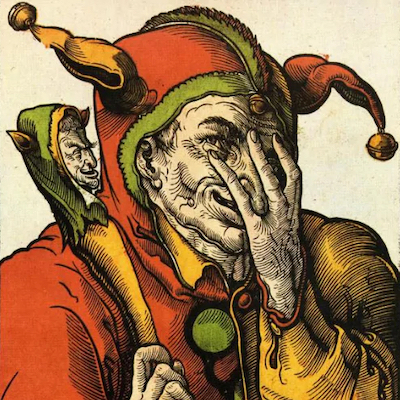Damage Repair

Image from The Sneetches and Other Stories, by Dr. Seuss
In a recent conversation with my friend, Ahmad Fahmy, we asked ourselves the question: what do we actually do? The usual coach-speak phrases about empowerment, motivation, engagement, psychological safety, transformation, etc. flowed forth, but soon tailed off into a bored blah, blah, blah. Yeah, we do that stuff, but there is something sad in that story.
Essentially, people already have personal power, and a sense of self; they are motivated to learn, to discover, they are engaged with the world and with their fellows; the majority of people trust the world to be a safe place, and have innate resources to deal with it when it is not. We are magnificent beings, born self-assured, curious, with the ability to relate, to collaborate, to love.
And, starting very early on, this power, this love of life, this innate ability is slowly eroded, crushed out of us by parents, schools, television shows, advertising, social media, peer groups, universities, job interviews, and finally the work environment itself. Each stage of our blossoming contributes equally to our withering (our loss of essential self). Once we reach the work place and start climbing the corporate ladder we are shells of the people we were born to be. In short, we are disempowered, demotivated, disengaged, and afraid.
To be clear, this doesn't affect everyone, and it affects different people differently. In general I think it's fair to say that those in the business world (and perhaps the white collar civil service) are affected more greatly by loss of self then those in, say, trade, manual labor or service work. Many in the business world have lost (or perhaps never had) a sense of purpose beyond gaining status and wealth. It is the business world in which I find myself. Perhaps for good reason. The business world as an entity is a lost soul, crying aloud, bereft and blind.
So, cue the coach, the leader, the transformation agent, the psychological safety advisor, and if that's not enough, add a leadership coach to oversee it all. We are the people to save you, to empower you, to motivate you, to engage you. We will artificially inject back into your souls and your psyches, in a few short months, what the world has sucked out of you over years. We are the fix-it-up chappies.
And blah, blah, blah.
Ahmad and I shook our noble, well-intentioned heads and sighed. What do we really do? Damage repair, one of us said. We desperately try to fix broken things that should not have been broken in the first place. We are janitors, cleaning up other people's mess. The Agile rescue profession is armed mostly with duct tape, splints and band aids. The cleverer coaches come armed with hope, and promises of a better tomorrow. But it's all in vain. Raising the dead might be another, more macabre, way of looking at what we do. We attempt to breathe life into dying organisations.
Bullshit Jobs
A bullshit job is described, by the late, great David Graeber, as a job that the world would be fine without [read it, it's brilliant]. I'd add that it is a job artificially created to keep the hoi polloi occupied, lest too much leisure time, too much time to think, might lead to...thinking. And that would make the empire very nervous.
The entire IP (intellectual property) specialisation is a fine example of an artificially-sown field growing a genetically modified crop. It is impossible to own an idea, and yet a vast industry teeming with experts has grown to do exactly that. It is because of the very impossibility of such ownership that the industry is as large as it is, and continues to grow. And while the somewhat smarter people are fighting each other over who owns what concept, no one is paying attention as the world is systematically falling apart. But not to single out IP folk, consider the job of CEO. Few, if any CEOs these days are founders. They are trouble-shooters, mercenaries hired for the sole purpose of maximising profit. It's likely few actually care about the products and services of the entity they lead, let alone the workers. The world will survive happily without IP lawyers, and without CEOs.
And worryingly, all of this probably applies to what I do. People in our profession, we prop up incompetent, self-harming, addicted-to-power, abusive, inhumane organisations. And we act like drug-happy doctors or dependency-inducing psychoanalysts to individuals. Honestly, if we just let broken organisations fail, and if we encouraged individuals to take care of their own physical and mental health, to stop seeking leaders and gurus, methods, models and processes, and start acting like responsible, thoughtful, caring citizens we'd probably be serving the world much more effectively. As it is we are all complicit in maintaining, even championing the status quo—the very thing we say we are "transforming".
Damage repair is not altogether without honour, if we recognise it for what it is. The goal, for me, is to trace the damage back to source, and discover how to hold people more carefully, more lovingly, so they don't become broken. We talk about working in schools from time to time, but the damage sets in before that. How do all of us become better parents, brothers, sisters, uncles, aunts, friends, companions to the next generation? How do we apply principles of respect, autonomy, release and trust to children, starting from the moment they are born? This, for me, is perhaps the most important question if I am to continue living and working in a meaningful way.
—
Thank you to Ahmad, Ash Sheik and Sylvester McMonkey McBean for the inspiration to write this piece.
London, 20/02/2017 comment
